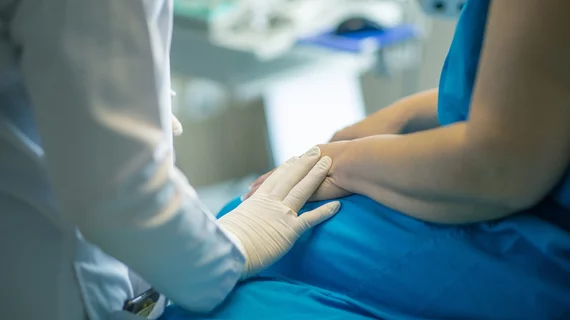More Americans are putting off care than ever before
The percentage of Americans who are postponing medical care has reached a new high, according to a recent Gallup poll.
In the survey, 38% of respondents said they or a family member postponed medical treatment in 2022. That’s a 12-point increase from the previous year and the highest percentage recorded in Gallup’s 22-year trend history.
The poll was conducted at the end of 2022, between Nov. 9 and Dec. 2, revealing the highest figure by five points. Gallup has been tracking how many Americans have postponed care due to cost since 2001. The 2022 figure also marks the highest year-over-year increase to date.
The finding comes as the U.S. healthcare industry is facing numerous economic headwinds, and Americans are feeling the pinch of higher prices, near-record inflation levels and ongoing impacts from the COVID-19 pandemic. The headwinds have led to Americans more likely to view inflation “as the most important problem facing the U.S. in 2022 than at any time since 1984,” Gallup stated, citing its own poll from mid-2022 about economic opinions.
The percentage of Americans putting off medical care due to cost in 2022 compares to 26% who said the same during the COVID-19 pandemic, which was the lowest since 2004. By comparison, the previous highs were in 2014 and 2019 when 33% of Americans postponed care. On average, 29% of U.S. adults reported putting off medical treatment because of cost between 2001 and 2021.
Unfortunately, the poll also revealed that twice as many Americans were likely to report delayed care for a serious condition rather than nonserious condition in 2022. Overall, 27% said they put off care for a serious “very” or “somewhat” condition or illness, and 11% said the same for a “not very” or “not at all” serious condition or illness. That 16-point gap is the second-highest recorded by Gallup, behind 2019 when the gap was 17 points. The trend since 2004 has shown that more U.S. adults have said the medical care needed was for a serious than nonserious condition, Gallup noted.
“With high inflation creating moderate to severe hardship for a majority of Americans in the second half of 2022, their reports of delaying medical care in general due to cost––as well as delaying care for a serious condition––rose sharply to new highs,” the poll noted.
Lower-income adults, younger adults and women were more likely to report they or a family member postponed care for a serious medical condition. Americans with an annual salary below $40,000 were nearly twice as likely compared to those with an income of $100,000 or more to say someone in their family delayed medical care for a serious condition due to cost––34% compared to 18%.
Young and middle-aged adults were much more likely than older adults to say they or a family member delayed medical care for a serious condition, likely because older adults are covered by Medicare. A new high of 35% of adults aged 18 to 49 said they or someone in their family put off care, compared to 25% of those aged 50 to 64 and 13% of those aged 65 and older.
In addition, “32% of women and 20% of men reported putting off medical treatment, representing a 12-point increase from 2021 for women and a five-point increase for men,” Gallup found. That 12-point difference is significantly higher than the seven-point average reported since 2001.

